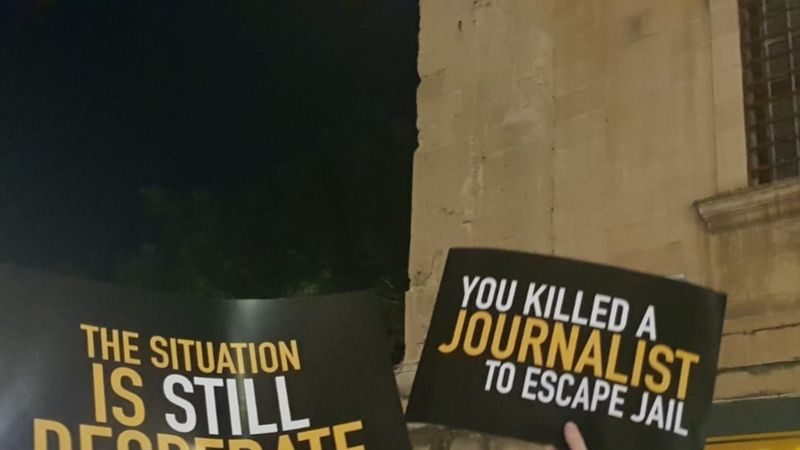Human rights, anti-corruption and media freedom organisations called on the German government to increase protection for journalists and civil society, referring to a number of cases, including the assassination of Daphne Caruana Galizia, to draw attention to the need for greater protection.
“State-supported attacks on civil society are increasing, while space for organisations and journalists that are critical of governments is shrinking,” according to a joint statement by Transparency International, PEN, Reporters Without Borders (RSF) and Amnesty International.
The statement notes that press freedom in Europe has shown a larger decline than any other world region. “Organised crime, a corrupt judiciary, politicians and security authorities, who often benefit from criminal networks themselves, are fuelling a cycle of impunity time and time again,” said Michael Rediske, board member of RSF Germany.
“If no punishment is imminent, imitators feel encouraged. To break this vicious circle, political pressure from the outside is essential,” he added.
Vice President of PEN Centre Germany, Ralf Nestmayer, echoed these concerns. “The cruel murder of investigative journalist and blogger Daphne Caruana Galizia, and the lack of ambition on the part of the Maltese authorities to solve this crime, reveals how seriously the rule of law in an EU country has been eroded by corruption.”
Alarming developments were also noted in other EU member states, including Hungary where supporting refugees by offering legal advice is punishable by law, and Italy where those conducting maritime rescue operations were being charged with crimes.
In Germany, legal battles are being fought to deprive civil society groups of their non-profit status. The independence of the judiciary is also being called into question in Poland and Hungary.
Malta has come under increasing pressure from press freedom watchdogs, and from international organisations including the Council of Europe, for its failure to identify the masterminds behind the Caruana Galizia assassination.
The declining political climate in Europe is placing civil society, social movements and journalists at increased risk, the organisations said, as they called on the German government to increase protection for journalists and civil society in Europe.
Hartmut Bäumer, Chair of Transparency Germany, went so far as to suggest funding cuts for governments who abuse their power. “The German federal government must make sure that governments that trample on the rule of law in their countries and suppress dissenting voices do not remain in control of financial support from the EU.”
Malta is the third lowest ranking EU Member state for media freedom, according to Reporters Without Borders (RSF) World Press Freedom Index, with only Hungary and Bulgaria scoring worse.
Since the Labour Party came to power in 2013, the country’s press freedom ranking has plummeted a staggering 32 places, from number 45 in 2013 to number 77 in 2019, placing it lower than countries such as Togo, Mongolia, Tunisia, Georgia and Armenia.
More than 30 threats to national and international media workers in Malta have been reported to press freedom watchdogs, the bulk being against investigative online news portal The Shift.












